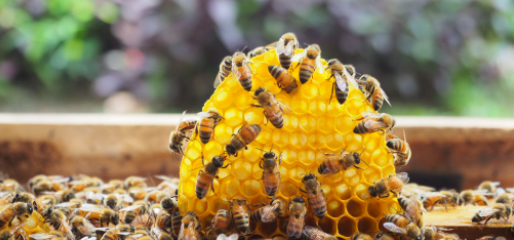What Your Builder Should Know About Termites in New Construction for your home – Termite infestation is always a risk, regardless of where your house is or what it is made of. Unless you take the necessary common precautions, it is almost a certainty in some areas, such as Chicago. Even before you start building your home, you should consider the importance of termite treatment for new home construction.
The EPA estimates that homeowners across the country spend billions of dollars each year repairing termite damage. For most people, the question isn’t whether termites will attack; it’s when.
Termites have the ability to strike quickly from underground, outside, and even above. That makes them difficult to defend against–but if you don’t, you’ll probably wish you had.
Here are some basic questions to ask right away if you want to protect your investment from the start.
Can Termites Affect New Homes That Haven’t Been Completely Built?
Many people believe that a home is safe from termites until it is completed.
Termites can wreak havoc on your new home before it is finished. They have the ability to demolish walls by eating through the wood planks that frame any structure. Even brick houses are vulnerable because termites can get into the roof and eat the wood away.
The destruction does not stop at the walls and roofs. If you do not treat the soil on which your home is built with a termiticide, the slab can be compromised. Termites can burrow up from the ground to wreak havoc, costing you thousands of dollars.
Fumigation costs between $1 and $4 per square foot after an infestation. At that price, fumigating a 1,500-square-foot house would cost around $3,000.
That is before you consider the cost of repairing what the termites have already eaten away.
Trust us: you don’t want to put off worrying about termites until the damage has already been done.
Ensure the safety of my new home – Pest and Termite Control
Hiring a professional pest control expert for new construction pretreatment termite is a must when building a new house. Before pouring the foundation of a new building, they will treat the soil with termiticide.
Additional services may include treating the wood structure after it has been framed.
Why Should I Apply Common Termiticide to the Soil Before Pouring a Foundation?
Before pouring a concrete foundation, apply the appropriate chemicals of termiticide. This protects against ground-based termites. Pretreatment should typically occur after the footers have been poured and before the new foundation–but not too soon before. Exterminators with experience recommend treating the soil no more than 24 hours before pouring the foundation.
And if it rains or snows, the soil will have to recede.
The exterminator should then return shortly after the construction is finished to treat the soft areas around the structure. This is referred to as final grade treatment
What Are the Best Pretreatment Products?
When it comes to termite control, both homeowners and builders tend to concentrate on the product. They are concerned with the type of termiticide that will be used.
Exterminators performing termite treatment for new home construction, on the other hand, are required to use only EPA- and state-approved products. All of these termiticides have been thoroughly tested. In short, the individual brand may not matter all that much–they’ll all get the job done. The main distinction will be the amount of residual protection they provide.
In this regard, the most expensive and well-known products aren’t always the best. Termidor, for example, provides less residual protection (roughly 7-10 years) than many of the less expensive products on the market. Some low-cost options can last for more than 15 years.
The key is in the way it is combined and applied. A low-end product mixed properly and used correctly will outperform a high-end product that has been mishandled. Even the best product on the market will not compensate for poor usage.
While you can treat yourself, it is usually best to hire an experienced exterminator who knows what they’re doing. Inquire around, look at review sites, and get references. You want someone you can rely on.
Which Termite Treatment Methods Are Most Effective for New Construction?
There are two main types of treatment that have been shown to be effective:
Liquid Soil Treatment: An exterminator will treat the soil with an EPA-approved termiticide before pouring the foundation or slab. All footers and areas where slabs will be poured should be built in accordance with your state’s regulations. This is done during the early stages of construction. If your exterminator is reputable, it should come with a service warranty, which is usually for 2-3 years.
Borate Termite Treatment: In the second option, your exterminator will treat all wood in contact with the foundation with natural borates. Every piece of wood that comes into contact with concrete is treated at least 2 feet away from the point of contact. This occurs after dry-in and prior to the installation of drywall, and is usually done at the same time as the plumbing and electrical. This should come with a multi-year warranty as well.
How Long Will My Home Be Safe?
The residual effects of the product are the most important aspect of termite prevention. Depending on the termiticide and skill used, your home should be protected for 3-15 years.
As you might expect, many of the less expensive products offer less protection for a shorter period of time. Most of the more expensive products (Termidor, Premise 75, and so on) provide adequate protection for 5-12 years.
The longest active residual protection, on the other hand, is 15 years or more. This is primarily due to the use of products containing the active ingredient bifenthrin.
The good news is that those products are priced in line with cheaper termiticides.
How Much Will It Cost Me to Protect My New Home?
You get what you pay for when it comes to hiring an exterminator. Be cautious if you find prices that are lower than the normal range. Low costs may imply that exterminators use less expensive products or rush the job. Accept a few bids, but if an offer seems too good to be true, it probably is.
Having said that, the cost of termite treatment for new home construction is typically determined by the square footage involved. Commercial construction costs less because the buildings are larger than their residential counterparts. Residential treatments are more expensive in terms of labor.
- Commercial termite treatment costs as little as 15 cents per square foot on large projects, while larger residential projects, such as multi-unit homes, can cost as much as 25 cents per square foot.
- The majority of single-family homes will cost between 30-75 cents per square foot.
That last category is most likely what you’re looking at.
How Many Treatments Will I Require for My Home?
-
- This is determined by the type of construction, the size of the foundation, and the season in which you are working. Termite pretreatment, on the other hand, usually requires a minimum of two applications in all cases.
- The majority of new construction pretreatments are two-step processes. Before the foundation is poured, the soil beneath it is treated. While this can be done in a single application in rare cases, larger areas usually require multiple applications.
- The final grade treatment is the final step. This occurs after the structure has already been built. • Final grade treatments create a continuous barrier around the perimeter of the foundation.
- Coordination with the builder is one of the most difficult aspects of treating for termites during construction. Exterminators must communicate with contractors to determine when they can perform treatments. Synchronization is essential for ensuring that everything is done correctly.
- Keep in mind that the best treatment plan will be determined by the type of construction, your budget, and the builder’s deadlines. Find a builder and exterminator you can rely on to provide you with the best advice for your specific situation.
- Don’t give up hope, no matter what. Countless homeowners have won the war against these pesky little annoyances over the years, and you will too.
If you live in the Chicago area, please contact us for a free termite inspection.
Call Preyon Pest Control today for a free pre-treatment estimate!
For professional termite pretreatment services in Chicago, IL, or the surrounding area, contact us at (708) 400-0101. Our goal is for you to feel safe and at ease in your own home. We are a 24-hour business so contact us any time!




